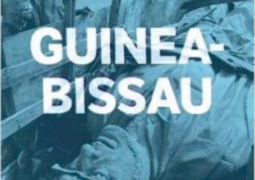The recently concluded AECAWA Meeting of West African Catholic clergy, advocated for Youth on the theme 'youth and migration'. This was seen as their last English speaking Bishops conference as AECAWA gives way to RECOWA comprising the French and English speaking West African Bishops. In their final communiqué, they advocated for you as the Chairman H.E. Peter Cardinal Tuckson, Archbishop of Cape Coast says below:
Unemployment and other Social Ills
The 1994 Special Assembly for
Both governments and the Church must take a very strong view of the frightening and increasing phenomena of child labour, drug trafficking and human trafficking especially of women and children that are showing their disastrous heads in the region. Countries within the region must seek to eradicate certain social evils and criminal activities such as armed robbery, kidnapping, prostitution and political intolerance that may be prevalent so as to prevent their spreading into countries that otherwise do not have them.
On the positive side, governments and the Church should embark on a programme of cultural, educational and sporting exchanges. This we hope will help to create better understanding among our youth and a deeper appreciation of the cultural heritage of the West African region.
Formation of Youth
The Church in our region as part of a universal community of faith and love, where there is no freeman or slave, should make use of its Formation Centres: our Seminaries, both Minor and Major, our Catholic Universities, Youth Leadership Formation Centres, our Pastoral and Catechetical Centres, to break the colonial legacy of linguistic barrier and to correct our history to let our youth know that we are West Africans, first and foremost, and will remain so before being categorized as "Francophone" or "Anglophone" or "Lusophone".
With the Servant of God, Pope John Paul II, "we know very well that youth are not only the present but above all the future of humanity. It is thus necessary to help young people to overcomer obstacles thwarting their development: illiteracy, idleness, anger, drugs. In order to meet these (challenges, we urge young people themselves to become Evangelisers of their peers" (ETA 93). We consider pastoral care for youth to be part of the overall pastoral plan of our dioceses and parishes) so that young people will be able to discover very early the value of the gift of self and essential means for the person to reach maturity. In this regard, we consider the celebration of the World Youth Day as a privileged instrument for the pastoral care of youth which favours their formation through prayer, study and reflection.
We consider certain types of forced migration as new forms of slavery. While we abhor all forms of hatred and inhuman treatment directed towards migrants in any part of the world, we are greatly disturbed by the new form of xenophobia and racism directed in a selected manner to migrants 1 from
THE YOUTH
Now we would like to address a word to our youth. We know that "the economic situation of poverty has a particular negative impact on the young. They embark on adult life with very little enthusiasm for a present riddled with frustrations and they look with still less hope to a future which to them seems sad and sombre. That is why they tend to flee the neglected rural areas and gather in cities which in fact do not have much more to offer them. Many of them go to foreign countries where, as if in exile, they live a precarious existence as refugees" (EIA 115).
Dear young people, we your pastors consider it a duty to plead your cause: it is urgently necessary to find a solution to your eagerness to take part in the life of the nation and of the Church. But at the same time we also wish to appeal to you to take in hand the development of your countries, to love the culture of your people, and to work for its renewal with fidelity to your cultural heritage through a sharpening of your scientific and technical expertise and above all through the witness of your Christian faith. (cf. EIA 115)
As pastors, we advise you to obtain genuine documents when you have to travel outside your country and also not to use unlawful and dangerous means such as stowing away, using clandestine routes across the
We invite students in our educational institutions at different levels in the region to initiate cultural exchanges among themselves in order to curtail this morbid psychological fear of immigrants.
CONCLUSION
In conclusion we invoke the intercession of the Blessed Virgin Mary, Queen of



